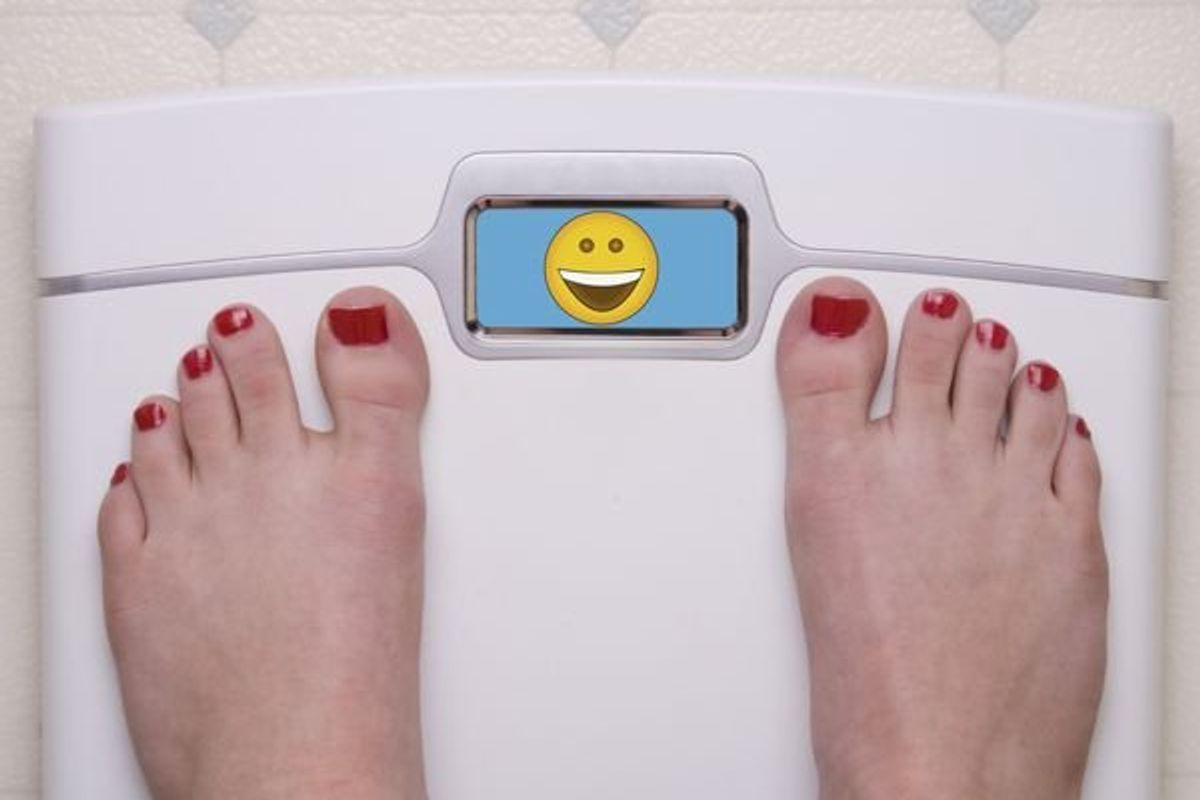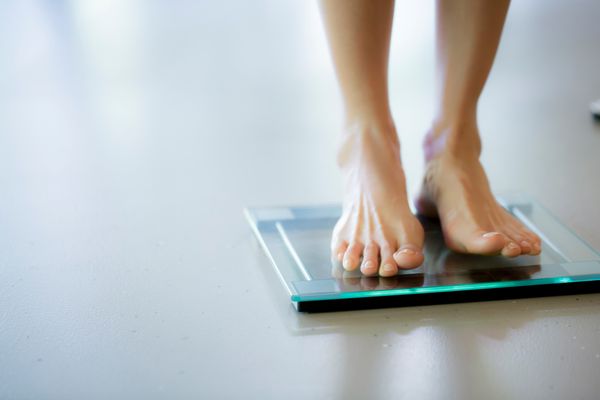Did you read this headline and stop in your tracks, hungry for some advice? Or did you read this headline and skeptically think, "Sure, sure, another trick just to get me to read."
I want to share something with you. Don't hate me. (Why do I say this? Because when it comes to weight, people get really funny about things and take things very personally. It's a hot-button issue, for sure.)
Although I've never really had to battle my weight (except for the two times I gleefully—then remorsefully—gained 40-plus pounds by eating ice cream and cookies every night of both my pregnancies. Trust me, I'm hardly endorsing this behavior), after menopause things … changed.
I always swore it wouldn't happen to me, but it did. My once naturally thin body began to morph into something I didn't easily recognize. Where there was never a well-defined waist, now there was scarce evidence of one. How was it possible that I suddenly had pads of fat seemingly everywhere?
And pounds that used to steer clear of my small-ish frame suddenly felt very at home building a foundation.
For someone who was not used to dieting, I had to figure out how to rid my body of the extra stubborn pounds. I had no idea just how to diet, nor did I believe in it (the concept just doesn't make sense to me—either you're "on" a diet or you're "off" a diet). And although I've passed through menopause, losing weight has been possible.
Through my own personal experience and through some research, I've found some helpful ways to shed weight without dieting:
- Drink water first thing. This is not something I generally do, but after reading the tip in holistic health expert Winnie Abramson's book, One Simple Change, I'm going to give it a try. There are pretty good reasons to do this. Aside from the fact that hydration is healthy for your body, she says that just one glass of water is associated with a boost in your metabolism. But that's not the only way water helps: it also makes you feel fuller, plus it may be the answer to your hunger, since many people mistakenly feel hungry when all they really are is thirsty.
- Think about the scale. Personally, it helps me to weigh myself and record the number Every. Single. Morning. I'm aware that weight usually fluctuates between one and three pounds, but writing down a number makes me accountable. There's something about that "check-in" that helps me start my day on the right foot. Research is mixed on this notion; some experts caution against daily scale-checks and say you should limit it to once a week or even less. But you have to know yourself and what works best for you.
- Get enough sleep. There are numerous associations between sleep and weight. Most obvious is that if you get more sleep, it keeps you out of the kitchen and cuts down on your eating opportunities. Perhaps a bit less obvious is the fact that when you are tired, you tend to reach for a cup of coffee and/or a sweet pick-me-up. And then there's the metabolism connection: sleeping by itself won't help you lose weight, but being sleep-deprived can throw off your metabolism. Lastly and perhaps least of all obvious are those "hunger hormones," ghrelin and leptin. Ghrelin tells you when to eat; leptin tells you when to stop eating. And when you're sleep-deprived, all bets are off that they will do their job properly and send you the right signals.
- Chew more. Munch on an apple or orange, rather than downing some juice. Chewing takes time, and it also triggers satiety. Research has found that people who chew their food more take in fewer calories. Scientists found that chewing also produces less of ghrelin (that hunger-stimulating hormone) and more cholecystokinin (an appetite-suppressing hormone). And speaking of fruit, keep it within your line of sight—you'll be more apt to eat it if you can see it, say Cornell University scientists. That means keeping it in a bowl on the counter or at eye-level in the fridge.
- Shake it up. Mix up a shake with whey protein. Scientists found that a group consuming 55 grams of whey protein a day for 23 weeks lost an average of four pounds more than a group that consumed those calories in carbohydrates.
More Food for Thought:
Lose Excess Weight and Improve Your Overall Health
5 Weight Loss Updates You Might Have Missed







